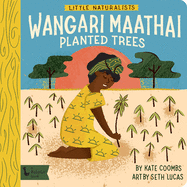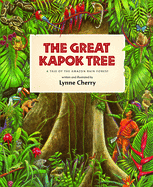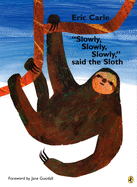National Forest Week
- Christina Dendy

- Jul 13, 2021
- 5 min read
Okay, so this week, July 12 through July 18, is National Forest Week. Personally, I think we should celebrate forests and trees and nature every week and every day, but I'm all for a special week to call attention to them, too. Here's a video from the National Forest Foundation explaining the idea, but it's a little long:
Today, forests cover about a third of Earth's land surface. That sounds like a lot, but it's a lot less than it used to be. We humans have done a pretty good job of winnowing down the planet's forest land over the 200,000 or so years we've been roaming about, building and burning stuff, farming, harvesting wood for various other uses, and so on. Deforestation serves a purpose, sure, but it causes and contributes to many problems, too, including air, water and ground pollution and soil erosion. It also weakens the planet's lung capacity, which is a cheeky way of saying that fewer trees means less oxygen for you, me and other animals to breathe. Want to learn more about deforestation? Watch:
Today, many people and groups across the world are working hard to reforest deforested areas, or those where forests have been largely cleared. (Here are some reforestation projects in the United States.) My first forest book is one of my favorite recent picture books and definitely one of my favorite biographical ones: The Boy Who Grew a Forest: The True Story of Jadav Payeng by Sophia Gholz and Kayla Harren. Known as the Forest Man of India, Payeng began planting bamboo seedlings on a sandbar in the river Brahmaputra in 1979. He was 16. This beautifully illustrated book tells the story of how he began growing what came to be known as the Molai Forest, now a protected reserve. I can think of no better way to celebrate forests than to share and enjoy his story.
Many people continue to do the work of reforesting today. You can read an awesome story about a German youth who set out on a mission to plant a million trees and is now running a United Nations program to plant a trillion: Felix Finkbeiner launched a movement of Climate Justice Ambassadors called Plant for the Planet. You can visit their website and find out how to help, start your own project or donate to an existing one.
And he's not alone! Young people (and not-so-young people) are doing great things.
Some might have been inspired not only by getting out into nature but also by reading and watching about trees, forests, rain forests, deforestation and more, just like you are right now. Perhaps they read Payeng's story ... or another's, like that of Professor Wangari Maathai. Eighty years wise, she started the Green Belt Movement in Kenya, in East Africa, in 1977. They've planted more than 51 million trees, and built up communities and created jobs and sustainable livelihoods in the process. Check out these amazing books about Maathai and her work:
Wangari's Trees of Peace: A True Story from Africa by Jeanette Winter
Environmental Activist Wangari Maathai by Jennifer Swanson
Planting the Trees of Kenya: The Story of Wangari Maathai by Claire A. Nivola
Wangari Maathai: The Woman Who Planted Millions of Trees by Franck Prevot and Aurélia Fronty
Mama Miti: Wangari Maathai and the Trees of Kenya by Donna Jo Napoli and Kadir Nelson
Planting Peace: The Story of Wangari Maathai by Gwendolyn Hooks and Margaux Carpentier
Seeds of Change: Planting a Path to Peace by Jen Cullerton Johnson and Wellington D. Sadler
Coming in August: Little Naturalists: Wangari Maathai Planted Trees by Kate Coombs
So many picture books celebrate the real-life work of environmentalists, activists, and scientists, among others, to preserve our forest spaces (e.g., The Tree Lady: The True Story of How One Tree-Loving Woman Changed a City Forever by H Joseph Hopkins and Jill McElmurry). However, many take you deeper into forest ecosystems, among the many remarkable organisms that call them home. Among them are the following:
Strange Trees: And the Stories Behind Them by Bernadette Pourquie and Cecile Gambini (translated by Yolanda Stern Broad)
Fungus Is Among Us! by Joy Keller and Erica Salcedo
The Busy Tree by Jennifer Ward and Lisa Falkenstern
Redwoods by Jason Chin
Into the Forest by Christiane Dorion and Jane McGuinness
Over and Under the Rainforest by Kate Messner and Christopher Silas Neal
The Great Kapok Tree: A Tale of the Amazon Rain Forest by Lynne Cherry
Still others, they celebrate forests in whimsical, lyrical, adventurous, humorous, and even shivery-spooky ways through stories whose telling depends on the forests in which they take place as surely as we depend on the trees in our own story. What would Red and the Wolf be without a forest to skip-sneak through? Here are a few of our favorites:
Slowly, Slowly, Slowly, Said the Sloth by Eric Carle
Zonia's Rain Forest by Juana Martinez-Neal
The Hike by Alison Farrell
Little Fox in the Forest by Stephanie Graegin
Hank Finds an Egg by Rebecca Dudley
The Tea Party in the Woods by Akiko Miyakoshi
Mother Bruce by Ryan Higgins (and all his subsequent titles like Hotel Bruce and Bruce's Big Storm)
There are so many amazing forest, rain forest, and related books out there. You can find more at my list on Bookshop.org, but I know there are many I haven't even included there. Let me know your favorites in the comments or a message, please.
Of course, when in doubt, you can always set aside the books and walk outside, into the woods, to make your own story, too. After all, "one could do worse than be a swinger of birches," as Robert Frost wrote in one of his many reflections on trees and wooded places. I'll leave you with another of his, which you might already know, especially if, like me, you had to memorize and recite it in the eighth grade. It is too hard to pick among the many brilliant odes to forests, so I default to this, because it and "Snowy Wood" have stayed with me for so many years. When I wander or face a choice, literally and metaphorically, I often hear echoes ...
The Road Not Taken by Robert Frost
Two roads diverged in a yellow wood, And sorry I could not travel both And be one traveler, long I stood And looked down one as far as I could To where it bent in the undergrowth; Then took the other, as just as fair, And having perhaps the better claim, Because it was grassy and wanted wear; Though as for that the passing there Had worn them really about the same, And both that morning equally lay In leaves no step had trodden black. Oh, I kept the first for another day! Yet knowing how way leads on to way, I doubted if I should ever come back. I shall be telling this with a sigh Somewhere ages and ages hence: Two roads diverged in a wood, and I— I took the one less traveled by, And that has made all the difference.

















































Comments